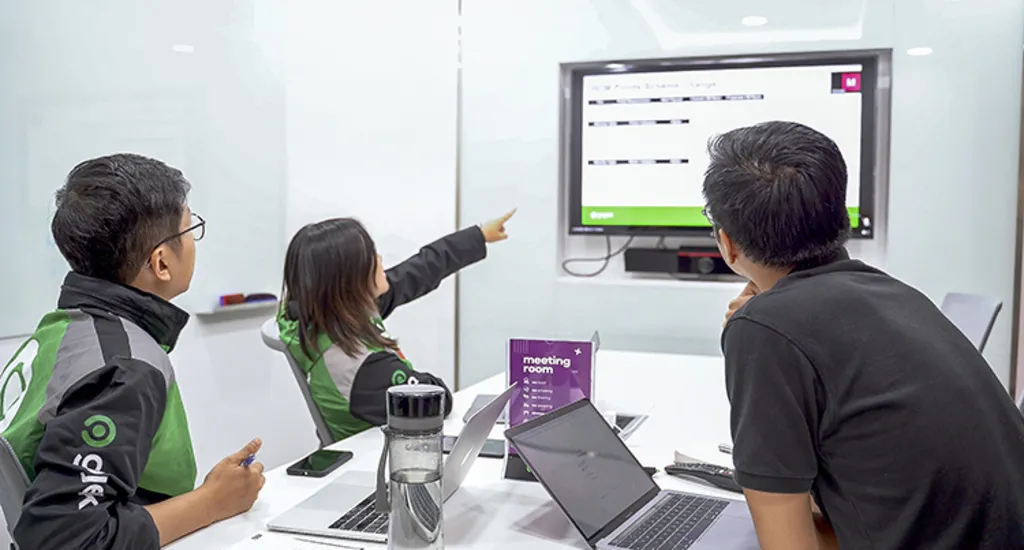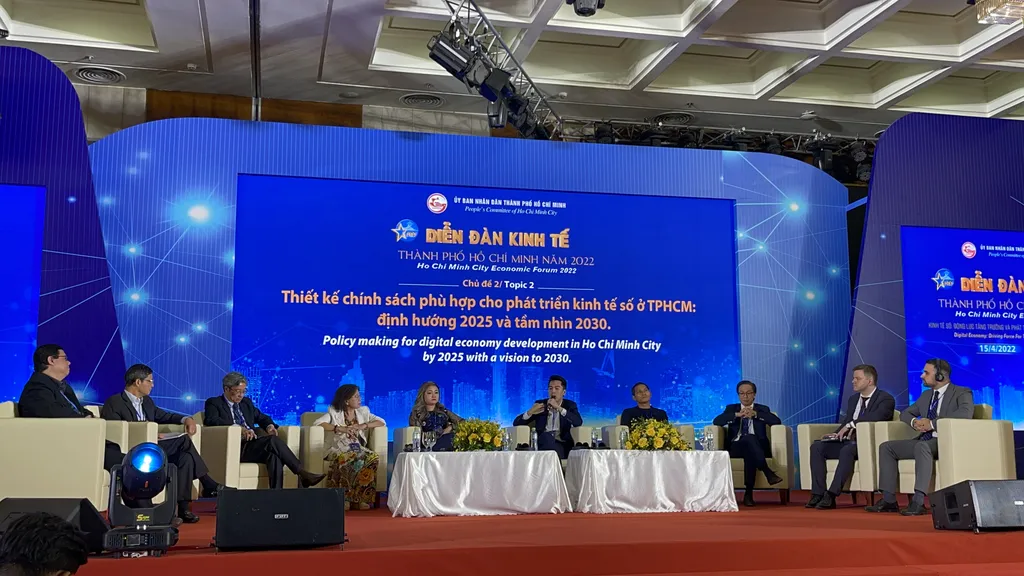 Brandinfo
Brandinfo

“Digital transformation does not come from a single department, but rather, it requires a change in the entire company’s mindset on the use of data,” Phùng Tuấn Đức, General Manager of Gojek Vietnam, said at the 2022 Ho Chi Minh City Economic Forum, while referring to his company’s experience.
At the forum held by the HCMC People’s Committee with the theme “Digital economy: Driving force for growth and development of HCMC,” Đức and other speakers highlighted that big data plays an important role in enabling digital transformation, but the key to success does not depend solely on owning data but on how businesses handle that valuable resource.
Pointing out some common mistakes that businesses make while driving digital transformation, Đức noted that digital transformation cannot be seen as a single task that is assigned to the technology department as a separate project.
This would lead to a lack of connectivity across departments, incomplete integration of digital technology into all areas of the business, and inconsistency in data collection, making it difficult for businesses to achieve significant change, he said.
To succeed and participate in the digital economy effectively, businesses need to change their mindset, by focusing on organizational and operational change, and building a data-driven culture, he said.
By doing so, businesses can effectively leverage and analyze the data they have, and turn data into customer insights. This enables them to develop solutions that better meet consumer needs and create value for the community.
At Gojek, Southeast Asia’s leading on-demand, multi-service platform, its operations are very much dependent on digital infrastructure, but the human element has always been key. Gojek has a team of tech talents working across Indonesia, India, Singapore and Vietnam, dedicated to building technology-based solutions to improve the lives of millions of merchant and driver partners while meeting the daily needs of millions of consumers. Gojek’s tech team comprises developers, data scientists, designers and product managers who work on product innovation, data analytics and building the best experience for consumers.
However, for a company like Gojek, tech experts are not limited to the tech team. At Gojek, the company expects that everyone - including those outside of the engineering team - can work with data and take a hands-on approach to problem solving. In fact, integrating data-driven insights into business decisions has become part of the company’s culture. Employees are empowered to do this through technology, including data access, modeling and collaboration tools.
In reference to Gojek's focus on data, Đức also spoke about the "reverse process" where, instead of asking “What will be the next product or service?”, the platform starts from the ground up by asking “What problems are customers and partners in the ecosystem facing?” before coming up with a strategy to solve these problems.
To facilitate a culture of “rapid response”, Gojek's office is designed to be completely open in terms of space and function. In addition to fixed departments, the company often forms SWAT teams, consisting of members from different departments with different strengths and expertise to focus on efficient problem solving or to run a special project.
 |
| At Gojek, any decision or argument must be based on data to ensure objectivity. |
{ "id": "maH09hsPl8", "type": "myToolImages", "data": { "data": "" } }
{ "id": "rmNUogXF5-", "type": "myToolImages", "data": { "data": "" } }
Gojek’s journey in driving digitalization
“In addition to tapping on the organic strengths of the company, it is also important for companies to build an ecosystem where all members are able to actively participate in the digital transformation process”, Đức said.
To help everyone in the Gojek ecosystem be part of the digital economy, especially micro, small and medium-sized businesses, the company has introduced a number of initiatives in its four years of operations in Vietnam.
For instance, Gojek ran a programme called “So no one is left behind” in 2021 to support family members of Gojek driver partners in setting up a digital business. As part of the programme, Gojek facilitated a series of training sessions to help participants develop basic entrepreneurial skills, with a focus on food businesses, and equipped them with general knowledge about running a digital business, giving them the confidence to start their own enterprise on Gojek's GoFood platform.
 |
| Phùng Tuấn Đức (5th from right) speaks about Gojek’s data culture during a panel discussion at the 2022 HCM City Economic Forum. |
{ "id": "_aWyYI9fAI", "type": "myToolImages", "data": { "data": "" } }
{ "id": "rbSfOydggT", "type": "myToolImages", "data": { "data": "" } }
The Gojek platform enables hundreds of thousands of driver-partners to access income earning opportunities and improve their livelihoods.Thanks to technology, in addition to being motorbike-taxi drivers, driver-partners also have the opportunity to increase their incomes through food delivery and other delivery services on the Gojek app.
With the diverse range of services on the Gojek platform, demand from customers has also increased significantly in recent years, which in turn is helping to increase income for driver-partners and restaurants and eateries in Vietnam.
Finally, at the core of Gojek’s work is its commitment to social impact. Đức once shared that using digital technology to improve lives has been the focus of the company from the very beginning. This commitment continues to guide all its business decisions and serves as a driving force for the entire team, during both the good and challenging times.




